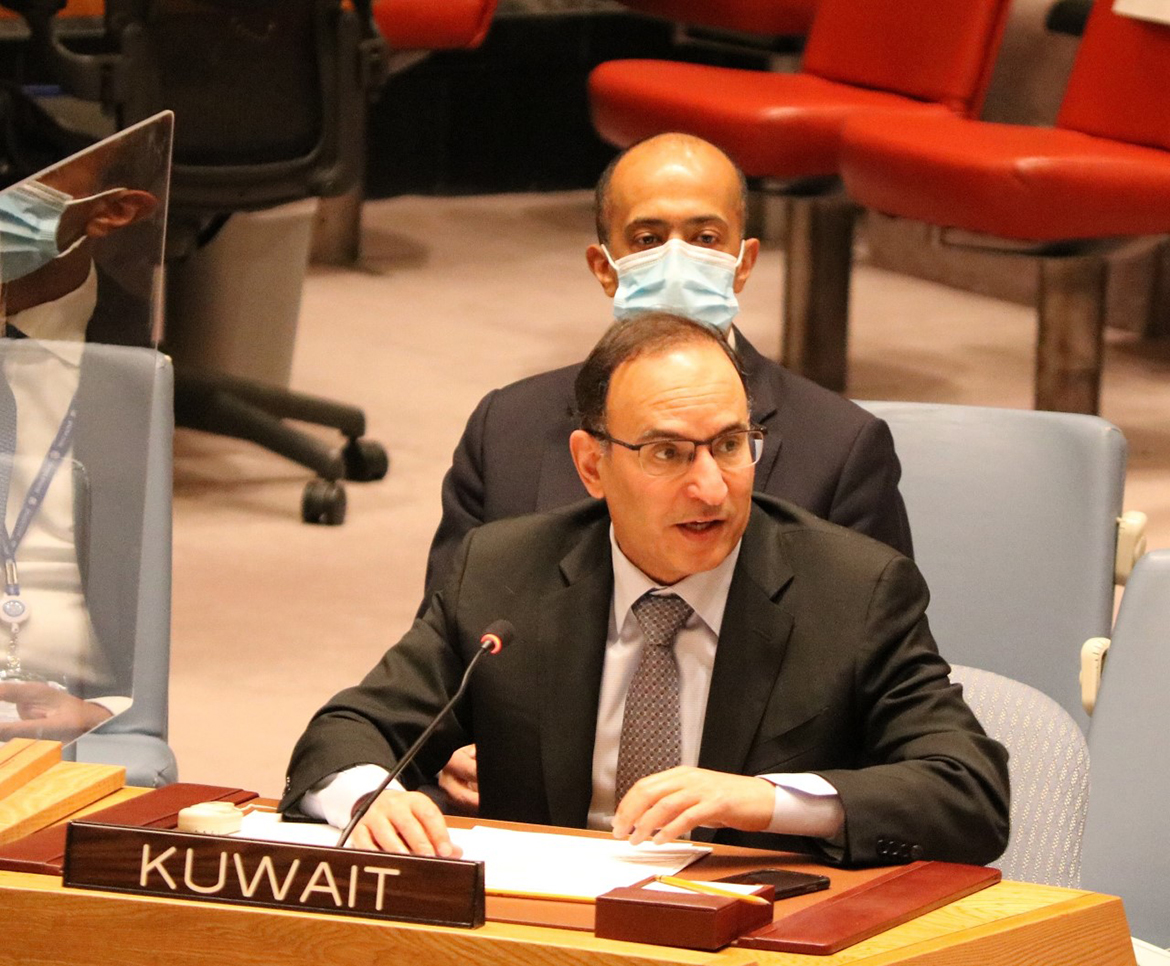NEW YORK: The UN Security Council voted unanimously Tuesday to wrap up the three-decade program which has allowed Kuwait to recover more than $50 billion from Iraq for damages caused by its 1990 invasion. Members approved a resolution to "terminate the mandate" of the United Nations Compensation Commission, concluding that the operation has "fulfilled" its purpose of adequately remunerating Kuwait.
The measure, drafted by Britain, says it "confirms that the government of Iraq is no longer required to deposit a percentage of proceeds from export sales of petroleum, petroleum products and natural gas into the fund". The claims process "is now complete and final", having recovered some $52.4 billion in total from Iraq for Kuwait, it adds.
Kuwait hailed the UN Security Council's efforts on ending the Kuwaiti-Iraqi compensation file and the firm will and strong determination that it showed to complete the implementation of this commitment. This came during Kuwait's speech delivered by the Permanent Representative of Kuwait to the UN, Ambassador Mansour Al-Otaibi, at the Security Council session in which it unanimously adopted Resolution 2621, which ended the mandate of the UN Compensation Commission.
"We are fully aware that compensation does not aim to punish the aggressor as much as it is keen to hold him accountable after the conflict ends by addressing the effects of the aggression and bearing legal responsibility for the losses and damages he caused and achieving justice for the affected governments and individuals," Otaibi said.
He also welcomed the Security Council's unanimous adoption of Resolution 2621 at the beginning of the session, which ends, after 31 years, the mandate of the committee, which was mandated in accordance with Resolutions 687 and 692 to consider claims for compensation for damages and losses incurred by governments, companies and individuals caused by Iraq's illegal invasion and occupation of Kuwait in 1990.
Furthermore, Otaibi added that the committee considered nearly 2.7 million claims submitted by more than 100 governments and a number of international organizations, with a total value of $352.5 billion. However, it approved around 1.5 million claims worth $52.4 billion, which confirms the conservative and cautious approach in examining the evidence available to verify all the claims due for compensation.
Otaibi noted the introductory paragraph contained in the decision, in which the Council expresses its appreciation for Kuwait's cooperation with the committee and the Iraqi government, and praises Kuwait's good intentions by agreeing to suspend the payment of compensation for three consecutive years for the years 2014, 2015 and 2016. This was in consideration of the circumstances and conditions that Iraq was going through and the serious security and economic challenges it was facing during that period, he added. The ambassador congratulated Iraq for fulfilling its obligations stipulated in Security Council resolutions related to the file.
"Today Iraq turns a page that has lasted 30 years," Iraqi Foreign Minister Fouad Mohammad Hussein told the Security Council. "It opens a new chapter" in which Iraq will seek to develop its relations and cooperation with the United Nations, the minister pledged, as he welcomed the commission's success.
The unprecedented panel is considered a model for reconciliation that could help resolve future conflicts if necessary. Created in May 1991 by Security Council Resolution 692, the commission managed Iraq's financial compensation which featured a five percent tax levied on its oil sales.
The funds have been distributed to individuals, companies, governmental agencies and other organizations that suffered losses when Saddam Hussein's Iraqi forces stormed across the border into its small, oil-rich neighbor in Aug 1990 and established a provisional government. The invasion prompted a series of biting UN sanctions and triggered the Gulf War which included a massive US-led ground and air offensive that ousted Iraq from Kuwait in early 1991. - Agencies











